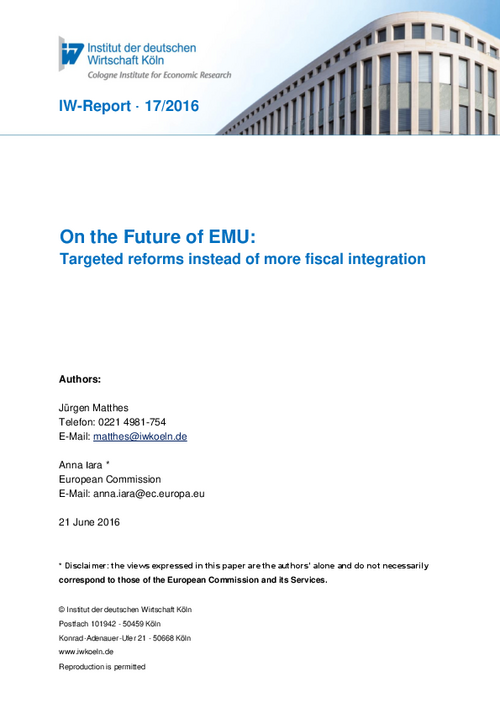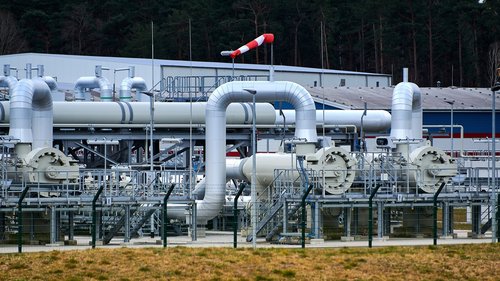According to a dominant narrative, the recent crisis has allegedly shown that EMU is not sustainable without fiscal risk sharing. We question this narrative and suggest that a limited set of reforms (mostly focusing on the financial sector) would suffice to make EMU sustainable.

Targeted reforms instead of more fiscal integration: What is the future for the Economic and Monetary Union (EMU) going to be like?
IW-Report

According to a dominant narrative, the recent crisis has allegedly shown that EMU is not sustainable without fiscal risk sharing. We question this narrative and suggest that a limited set of reforms (mostly focusing on the financial sector) would suffice to make EMU sustainable.
This debate has gained traction recently with the Five-Presidents-Report and a work programme of the EU Commission.
In brief, we argue that:
- The recent crisis was exceptional, because several extraordinary factors contributed to its severity that are unlikely to repeat.
- The remaining crisis legacy is likely to be temporary and should thus be tackled with temporary instruments only, such as the ECB’s unconventional monetary policy, for example.
- Reforms already implemented and yet to be taken can prevent excessive financial cycles in the future so that future crises in the euro area will be less severe.
- The functioning of EMU has been improved by recent reforms and need to be enhanced by some additional reforms mainly regarding the financial market.
- On this basis, euro area countries will be much better able to deal with idiosyncratic crises of a more “standard” size.

Jürgen Matthes / Anna Iara: On the Future of EMU: Targeted reforms instead of more fiscal integration
IW-Report

More on the topic

The Energy Dependence of Bank Loans
Russia's war against Ukraine has highlighted the vulnerability of the Federal Republic of Germany to Russian energy imports, especially natural gas.
IW
This time is different but still risky: Banking crisis instead of financial crisis
The current crisis of some American and European banks inevitably triggers fears that an international banking crisis could lead to a new financial crisis. But things in 2023 are very different from those in 2007.
IW